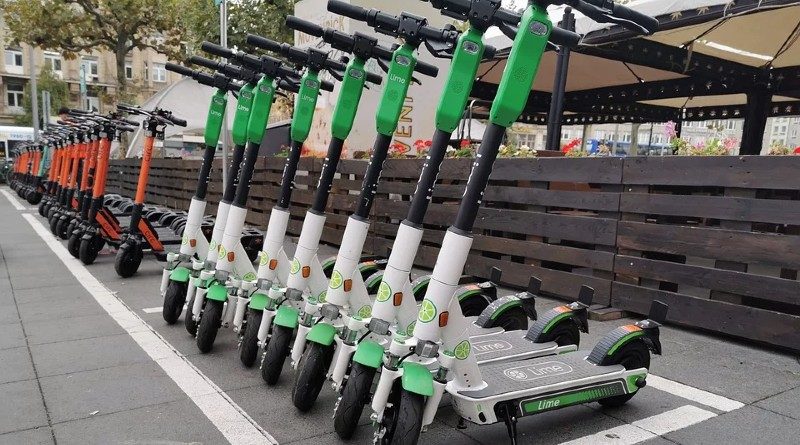e-Scooters in the UK modal mix: Impact on active travel
Continuing with CI.N’s e-Scooter series reporting from the webinar organised by Landor Links, active travel experts and local authority representatives were brought together to discuss the e-Scooter’s place in the UK’s modal mix, in light of rental trials rolling out across the UK.
The discussion centred around four key topics: speed and safety; impacts on active travel; Operator business models and operational guidelines; and management powers for local authorities. With electric scooter firms queuing up for UK street space, CI.N listens in on the second topic on the table: the impacts e-Scooters may have on active travel and modal shift in the UK.
The panellists participating in the webinar hail from a variety of backgrounds across active travel, industry, research and government. Their views were backed up by a number of polls throughout the webinar to gauge the opinions of the audience in light of the points raised.
Read up on what the experts had to say on scooter safety in light of rental trials in the first article in the series.
Impacts on active travel
Could e-Scooters become a powerful ally for cycling, or will they canabilise the active travel sector? During the webinar, the panel experts discussed how e-Scooters may fit into the UK’s active travel landscape, and what impacts they may have on other modes of transport.
Lorna Stevenson, Researcher at the University of Westminster, believes there may be more leeway for scooters at present due to the need to discourage people from using public transport to aid social distancing, but warned the success criteria for these trials may change in 12-24 months time. “At the end of the trials in a years’ time, when e-Scooters are still here, will we be nudging people back to public transport post-Covid?” She asked. “We need to bear in mind the benefit of giving people options balanced against safety and fear concerns which would limit others’ options, as well as social and carbon impact.”
The impact on active travel is a key consideration according to Mark Collins, Integration Innovation Lead at Transport for the West Midlands (TfWM), which is one of the regions chosen to roll out the first e-Scooter rental trials in the UK. In his view, success in this trial could also mean failure at the same time in regards to the learnings gained: “We don’t want e-Scooters to canabilise other forms of sustainable transport, although some of that will happen inevitably,” he said. “For us, we’re looking at what messaging we can put out there which appeals to car users to get some of that modal shift which is preferable to us. Also, how do we incentivise trigger points such as convenience, time efficiency, flexibility and other things that e-Scooters can offer car drivers to give them a choice they deem viable.”
Brian Deegan, Design Engineer at Urban Movement, believes e-Scooters could become an important ally for cycling in building the case for better infrastructure. He reasoned: “We want quiet streets, and e-Scooters will help in achieving low traffic neighbourhoods and in turn help get better infrastructure for cycling and walking, if e-Scooters aren’t to use the pavements. If we want to get more people campaigning for better streets not dominated by car traffic, then we need all the friends we can get.”
Agreeing with this point, Ceri Woolsgrove, Policy Officer at the European Cyclists’ Federation (ECF) cited research from Denmark, Brussels and Paris which show the majority of modal shift coming from walking and public transport, while the movement in the US comes from cars to scooters. “We need to remember that e-Scooters aren’t taking over the world yet, and I don’t see people necessarily buying scooters but preferring the spontaneity of the rental side,” he said. “We need better infrastructure, and more people using e-Scooters can help us get there.”
David Davis, Executive Director of PACTS, argued it is important to bear in mind that while Covid is being used as a justification for the Government’s e-Scooter trial, they aren’t discouraging car schemes either: “All the things I have read suggest the active travel health element of e-Scooters is small, while we may have saved some trips on cars which is healthy, how many walking trips are we going to use, and how many e-Scooters will be littering the pavements providing a deterrent to walking?”
Saying this, Davis conceded he was in favour of infrastructure improvements such as widening cycle lanes and pavements, but balance was important: “If we have 15mph scooters in bike lanes, which is faster than some bikes, then where is the incentive to cycle?” He asked.
Nick Davies, from Healthy Active Cities Research at the University of Salford, disagreed slightly, believing that while there may not be obvious physical benefits of using e-Scooters, there are several wellbeing benefits such as the release of endorphins, being out in the fresh air and the carbon benefit of replacing car journeys. “These are all things we can take as positive,” he explained. “It may not be the most active form of travel but it is another mode that potentially takes people away from cars. Secondary research we carried out on what is happening elsewhere shows pre-Covid people were already replacing public transport trips with e-Scooter trips.”
Davies’ colleague at Healthy Acitve Cities Research, Luke Blazejewski, agreed: “During Covid we’ve seen an unprecedented change to public spaces and local environmental spaces, with more cycling, walking, and green space access,” he offered. “People have a new relationship with what’s on their doorstep, and with that comes the opportunity to think about active travel and new travel modes while the idea of health and active travel is fresh in peoples’ minds. This is a good opportunity to engage with the public and bring them on board with e-Scooters.”
To gauge the feeling among the webinar audience, a couple of polls were put out asking for peoples’ opinions on e-Scooters and active travel. The first poll asked the audience how they thought e-Scooters would impact upon modal share. A slim majority of respondents (37%) believed e-Scooters will replace existing active modes such as cycling and walking, closely followed by 34% believing e-Scooters will replace public transport trips. Interestingly, only 7% believed e-Scooters would replace car trips, while 22% thought they would create new leisure trips ‘for fun’.
A second poll asked the webinar audience if they thought e-Scooters would reverse the trend for healthy active travel seen since Covid-19. 37% of respondents thought that the trend would be reversed ‘a bit’ closely followed by 32% of the audience believing it there would not be a regression in active healthy travel. 10% of people thought that e-Scooters would reverse the active travel gains seen since Covid, and 21% said they weren’t sure.
CI.N is covering the other topics touched on in the webinar in a series of in-depth articles, examining the influence e-Scooters could have on the UK’s future modal mix. Read what the panel thought of e-Scooters and their safety implications here.



